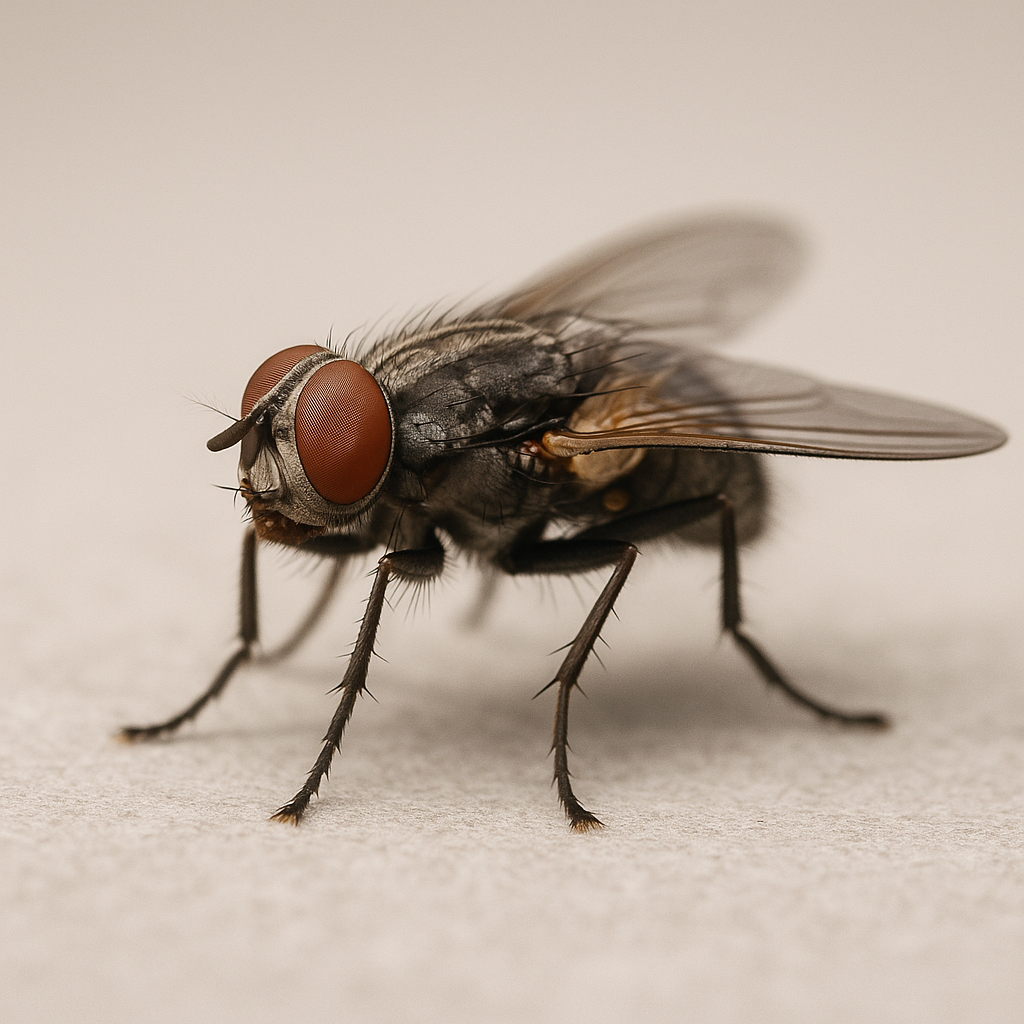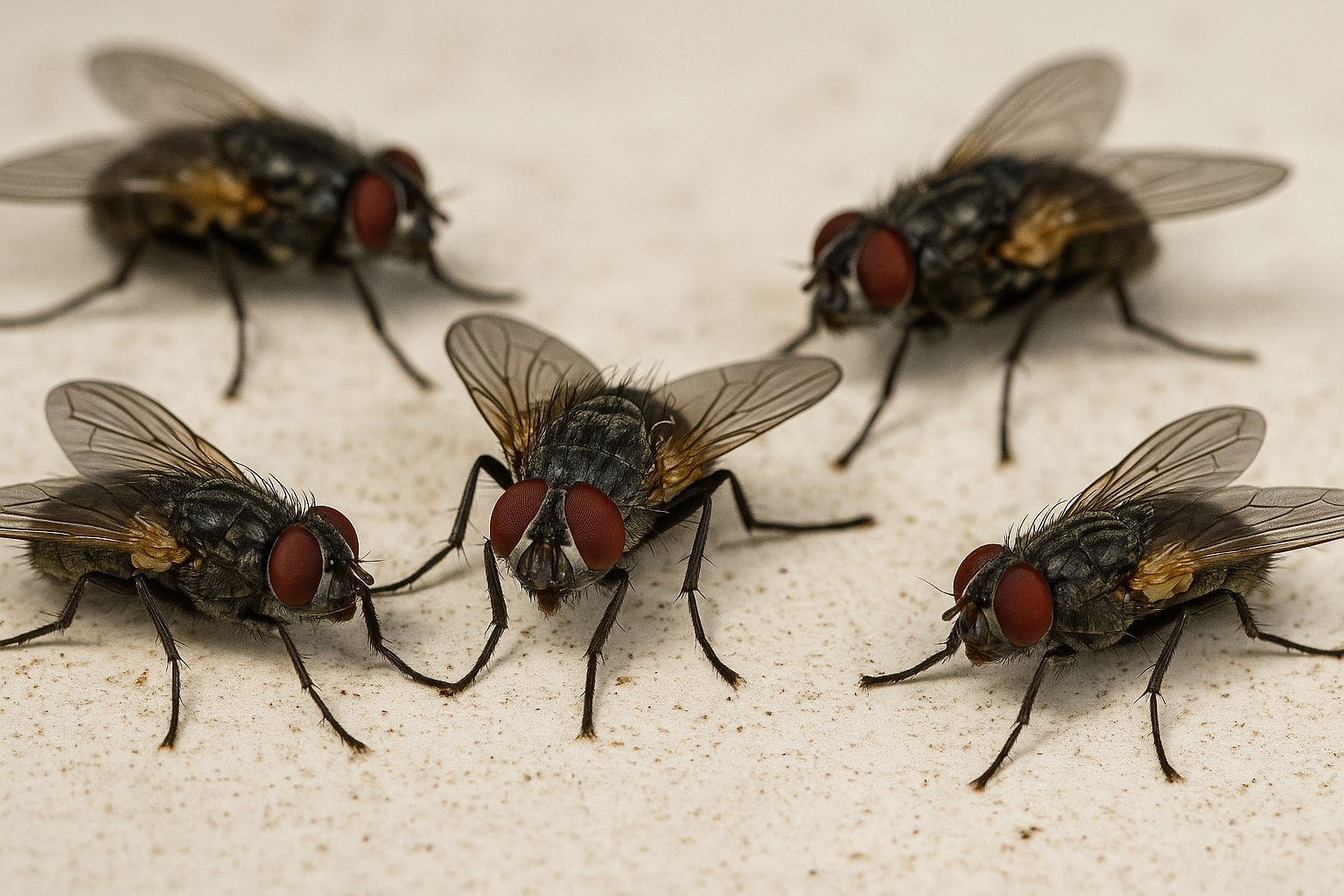Flies and other flying insects can quickly become a nuisance in homes, businesses, and outdoor areas. The most common species include house flies (Musca domestica), cluster flies (Pollenia rudis), bluebottles (Calliphora vomitoria), and fruit flies (Drosophila spp.)
These insects are not only irritating but can also pose health risks. Flies are known to carry and spread harmful bacteria, such as E. coli and Salmonella, contaminating food and surfaces. In commercial settings, especially in restaurants and food production, a fly problem can harm hygiene ratings and reputation.
Signs of a fly problem:
Large numbers of flies indoors or around bins.
Small dark clusters of spots on walls, ceilings, or light fittings.
Maggots (fly larvae) found in waste areas or food storage.
Prevention tips:
Keep kitchens and bins clean and covered.
Seal gaps around windows and doors.
Install fly screens where possible.
Remove standing water and food waste promptly.
If you are dealing with persistent flies or flying insects, professional treatment can help eliminate the problem and prevent it from returning.
Flies and other flying insects
Are flies dangerous?
Yes. Species such as the house fly (Musca domestica) and bluebottle (Calliphora vomitoria) spread bacteria including E. coli and Salmonella, contaminating food and surfaces.
Why do I have so many flies indoors?
Flies are attracted to food waste, uncovered bins, standing water, and open entry points around windows or doors.
What are cluster flies?
Cluster flies (Pollenia rudis) gather in large numbers inside lofts, attics, and window frames during autumn and winter. They don’t spread disease but are a major nuisance.
Can I get rid of flies myself?
Keeping areas clean, using fly screens, and removing waste will help reduce numbers, but infestations often need professional treatment.
How do you treat fly problems?
We identify the source of the infestation, apply safe treatments, and advise on proofing to prevent future issues.
Do you cover my area?
Yes, we provide fly and flying insect control across Newbury, Reading, Thatcham, Basingstoke, Hungerford, and surrounding areas.
FAQ


